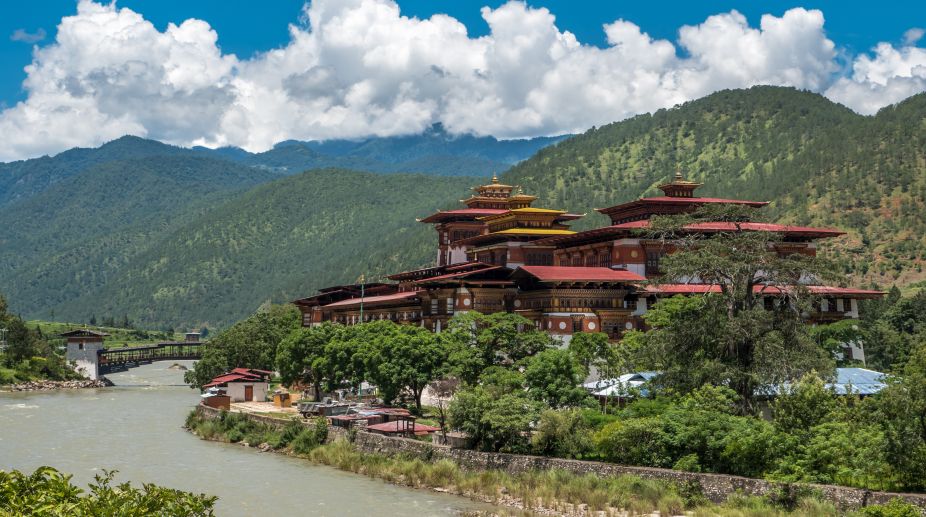Bhutan is one of the youngest democracies of the world and among those rare countries whose ruling monarchs believed in the “government of the people, for the people and by the people”. But even before the monarchs, there came a Buddhist lama from Tibet and unified the country, thus paving the way to what it is today. His contribution was so significant that even five decades after his death, his passing away was kept a secret.
The Queen Mother, Ashi Dorji Wangmo Wangchuck, took the visitors to the Mountain Echoes Literary Festival on a nostalgic ride down memory lane during the opening session here as she vividly recalled the thriving legacy of Zhabdrung Rinpoche, the founder of the Bhutanese state.
Advertisement
She was in conversation with Khenpo Sonam Bumdhen, a lecturer at the Institute of Science and Mind, in the jam-packed auditorium of Royal University of Bhutan.
“I am going to talk about Zhabdrung Rinpoche. He is the most revered person in the history of our nation, who founded and unified our country. Everything that we are today, everything that we have today is because of him,” Wangchuck said.
Without much glorification and tribute, the Queen Mother set the records straight by explaining his contribution to the Bhutanese state and first began by informing the diverse gathering from many parts of the world that Zhabdrung, the first name of Bhutan’s founder, literally translates into somebody at whose feet people submit. “And I submit to his feet every day of my life,” she maintained.
It emerged during the discussion that Zhabdrung’s arrival in Bhutan during the second decade of the 17th century was very timely.
“Like Buddha came to India at a time when there was great disparity and a genuine need for somebody like him to change the lives of people, Zhabdrung too arrived in Bhutan when there was a lot of turmoil and political disorder. It was very urgent for Zhabdrung to come to Bhutan because people were in pain, suffering and disorder,” Bumdhen elaborated.
According to most historical records, Zhabdrung arrived in Bhutan in 1617 along with 30 monks and soon gained control over the entire Himalayan kingdom. He is largely credited with unifying the people of Bhutan with a sense of cultural identity, which according to him, was very different from that of Tibet.
He consolidated control over western Bhutan subduing rivals belonging to the Lhapa, a branch of the Drikung Kagyu sect which had built some of the original dzongs in Bhutan, including the Punakha dzong, in 1637-38. The Drukpa Kagyu, the Lhapa Kagyu and the Nenyingpa had all controlled parts of western Bhutan since the 12th century.
Later he conquered and unified all of Bhutan. He founded the Cheri Monastery and lived there for many years. In 1629, he built the Semtokha dzong at the entrance to Thimphu valley. From this dzong he could exert control over traffic between the powerful Paro valley to the west and the Trongsa valley to the east. This emerged as his capital city and this was from where he ruled the entire kingdom.
His greatest contribution, the Queen Mother said, was the introduction of the dual system of government, or the union of the temporal and the spiritual. Under this system, the rulers were to pay equal attention to both public governance as well as spiritual matters.
“He sent this decree to all the districts and monasteries to declare himself as the Supreme Commander of Bhutanese people. Everybody fell in line because they knew that he was a person of great wisdom and that he would unify all of Bhutan into one cultural identity, which was not even thought of earlier,” Bumdhen added.
Rinpoche passed away in 1651, and power effectively passed to the penlops (local governors).
“His death was kept a secret for more than five decades to consolidate the new state and because his spiritual legacy had to be continued. The monks ruled while pretending to follow his orders,” the Queen Mother contended.











